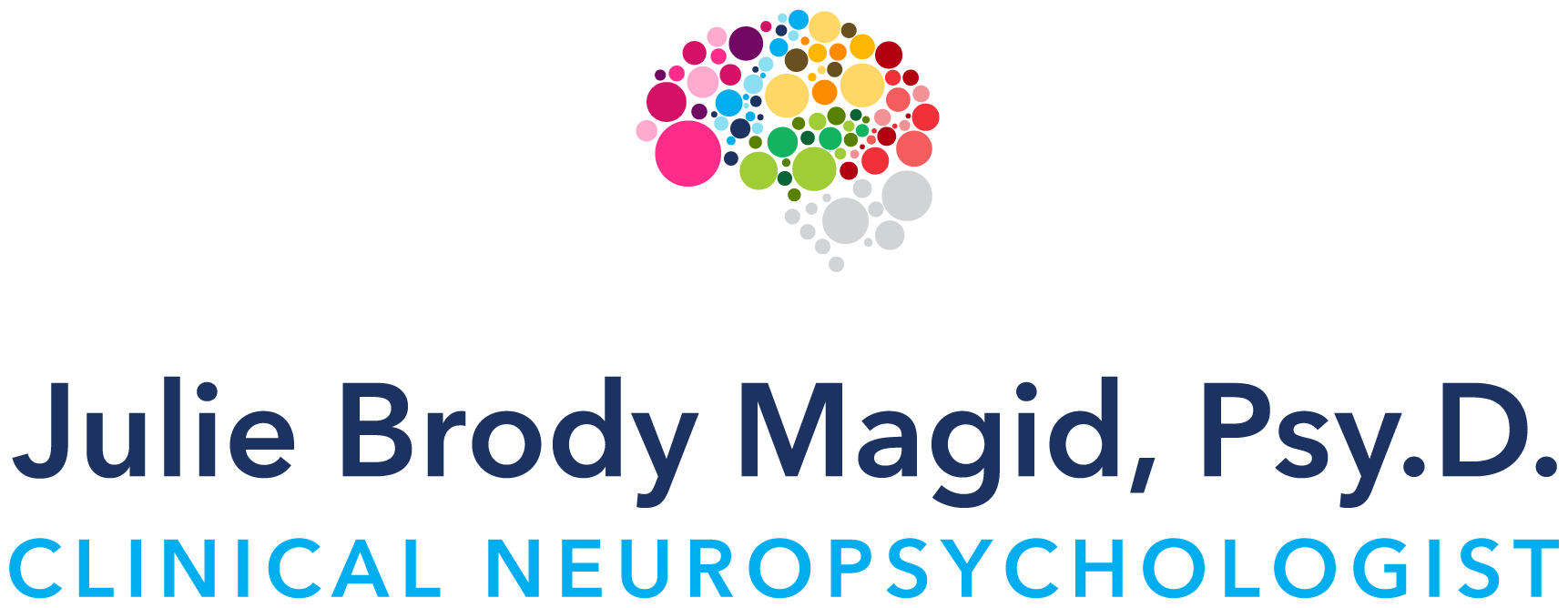Each evaluation is tailored to meet the needs of the individual with an emphasis on addressing the most notable or limiting issues.
Most assessments are completed in one or two sessions lasting a few hours apiece with intermittent breaks offered to allow for rest, nourishment, and activity. These factors help to boost thinking skills and emotional comfort.
Evaluations involve extensive interactive time with Dr. Brody Magid focused on paper and pencil tasks. Additionally, the patient often completes some tasks or questionnaires independently in the office environment.
During the COVID-19 era, Dr. Brody Magid has been conducting assessments via telehealth and/or in-person depending on the circumstances.
Telehealth evaluations have been well-established as a valid and useful means of gathering relevant data and answering clinical questions.
For in-person evaluations, a Covid-safe environment is maintained. Masks are currently optional and may be requested by the patient.
Common components of the assessment process include:
A lengthy clinical interview to review history and any matters that are relevant to the problem
Neuropsychological or cognitive evaluation if cognitive concerns or difficulties are primary
Psychodiagnostic or psychological evaluation if emotional or mental health issues are central
Neuropsychological consultation to better understand the nature of a problematic behavioral issue
Report & Feedback
After the evaluation is complete, Dr. Brody Magid scores all tests and writes a thorough report. The report includes information about diagnostic impressions but also emphasizes what types of strategies, treatment options, and community-based resources would be most beneficial.
The neuropsychological/psychological report is best shared with other doctors and treaters to allow for continuity of care although it is up to the patient to decide who receives the confidential report. Consultation and collaboration between Dr. Brody Magid and treatment team members is common.
A feedback session then follows at a later date with the patient. This session often includes family members and/or the treatment team, as guided by the patient. The findings of the evaluation are reviewed and recommendations for an action plan are discussed in detail.
In some cases, Dr. Brody Magid follows patients over time for repeat evaluations if there are questions about symptoms or problems changing. Improvements are also captured in these re-evaluations.

